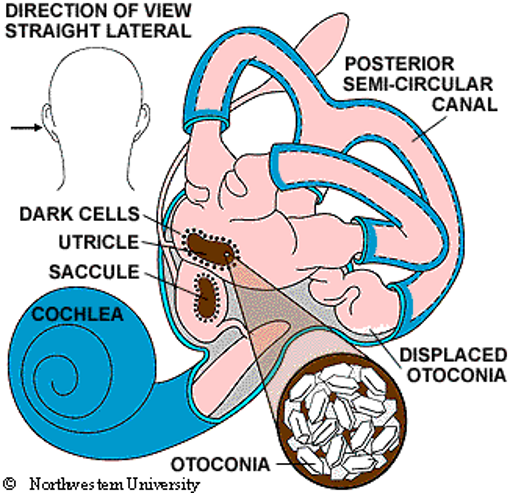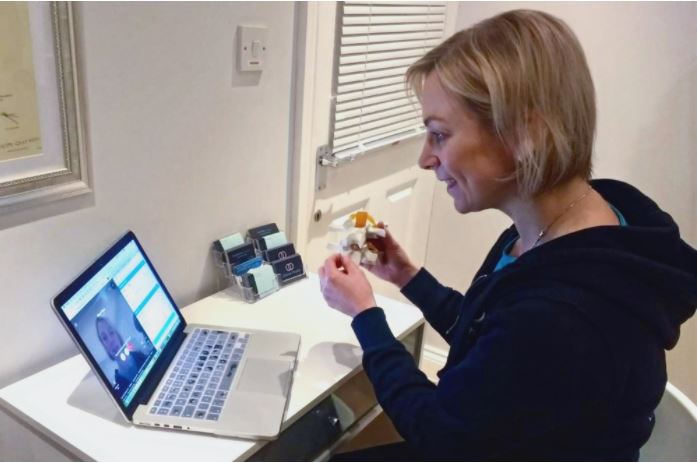Dizziness – Could it be caused by a condition treatable with physiotherapy called BPPV?
What makes BPPV different to other causes of dizziness is that the symptoms nearly always come on when a person changes their head position, for instance looking up to a top shelf, rolling over in bed or getting into bed.
How can physiotherapy help dizziness?
A diagnosis of BPPV can be made by listening to the history and nature of the symptoms. It is very common for it to start after an injury to the head, a fall or a car accident resulting in whiplash. Performing a special test called the Dix-Hallpike can confirm the diagnosis. This test involves quickly moving a person from a sitting position to lying on their back and looking out for rapid jumping movement of the eyes (called nystagmus). You may have seen this type of eye movement if you have ever looked at a child’s eyes when they come off a roundabout and are feeling dizzy.
BPPV can often be treated very successfully using the Epley manoeuvre to force the ear rocks back out of the semi-circular canals. This may only need to be performed once, although it some cases it may need to be repeated. Alongside this, a stiff neck or poor eye movement may be contributing to the symptoms so once the Epley manoeuvre is performed these may need to be worked on. Physiotherapists with specialist training can diagnose and treat BPPV and also have the skills to treat the other problems such as a stiff neck or poor tracking movements of the eye. In this way we can really treat the problem in a holistic way. Don’t suffer in silence or think there is nothing you can do, come along to see me at Omnia and so I can make a thorough assessment to see if your dizziness may be caused by BPPV. We can then get you on the road to recovery!
Sam







